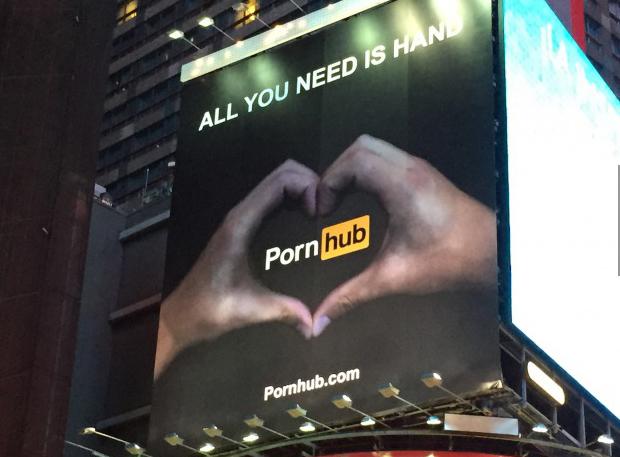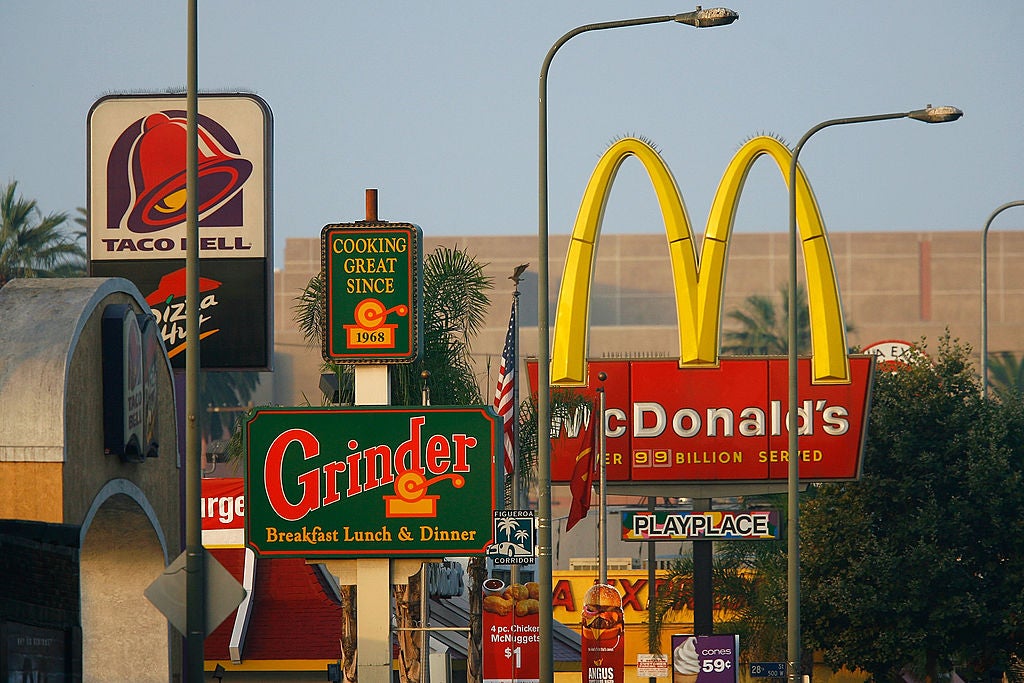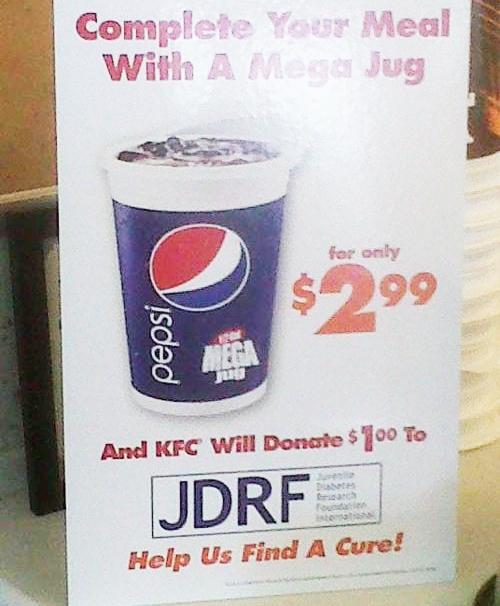Corporate social responsibility: ‘Hey everyone, smoke our brand of cigarettes and together we’ll save the environment’
CSR, or companies helping those less fortunate, must be a good thing, right? But can profit and principles co-exist in an environment where public mistrust of big business is greater than ever? Oliver Bennett examines the thin line between worthy philanthropy and worldwide ridicule

Earlier this year Pornhub –“the premiere online destination for adult entertainment” boasting 60 million daily visits – made an announcement. The huge pornography site, worth $3.46bn (£2.69bn) according to one valuation, announced the official launch of its “Pornhub Sexual Health Centre”.
The company billed it as an “online resource”, saying it would provide readers with information about sexuality, sexual health and relationships from a variety of right-thinking people including doctors, therapists and even community leaders. Pornhub’s vice president Corey Price noted that the company could “positively contribute to issues which have an underlying relation to Pornhub”, and mentioned other tantalising “initiatives in the educational, environmental and medical research spaces”.
As it turned out, Pornhub has philanthropic form. In 2015, it gave a $25,000 college scholarship and followed through with a “Save the Boobs” campaign, donating “1 cent for every 30 videos viewed from our big-tit and small-tit categories”. Thus, the more porn viewed, the more money the company donated to breast cancer research charities. And who could argue that that wasn’t a win-win situation?
This is the place that the trend for Corporate Social Responsibility – CSR – has brought us. It’s one of the biggest buzzes in contemporary business, showing that a company cares; that it’s big enough to care, and that it allies profit with principle. “It’s laughable, and stretches credulity,” says Jonathan Gabay, author of Brand Psychology (Kogan Page, £24.99). “That said, Pornhub is a big brand. Huge. You can’t underestimate its success.” And there’s no reason why Pornhub shouldn’t do its own form of CSR.
CSR stretches back a long way, in the form of company philanthropy. Quaker companies like Bournville and Cadbury were big on putting profits into social gains, as was the 19th-century steel tycoon Andrew Carnegie, whose business ethos was “to do well in order to do good”; although it wasn’t called CSR then. True, it hasn’t always been popular. Margaret Thatcher’s guru, economist Milton Friedman, reckoned in 1970 that “the doctrine of social responsibility is frequently a cloak for actions that are justified on other grounds rather than a reason for those actions”. And there can be an aspect of reputation-laundering to CSR, as well as being very useful in the dark arts of marketing and differentiation.
Whatever, it’s so big now that it cannot be ignored, even by small and medium-sized companies. Simon Cole, of the company Reputation Dividend, which measures the value of corporate reputation, says that in recent times CSR has matured to the point where it can now truly demonstrate its worth. “In the last couple of years I’ve been isolating CSR and addressing its value,” he says. “The gross of companies in the FTSE 350 index stood at £2,530bn of which 39 per cent – or £986bn – is the total reputation value. Of this, CSR accounts for 7.7 per cent, therefore the gross value of ‘matters CSR’ is £76bn in the UK – and by the same calculus, $424bn in the US.” Which means, he adds, that “CSR is huge and important. It’s not just ‘nice to have’: it’s a tangible value.”
Yet as it has grown, CSR become more critical, and more criticised. Some claim that it has risen precisely at a time when public trust in corporations has sunk: the 2017 Edelman Trust Barometer recently reported that our trust in business, among other organisations, is down, indicating that we have become a sceptical bunch. “It’s odd that CSR has grown at a time when brands have become less trusted,” says Gabay. “I think that it’s probably due to people have so much overexposure to brand hype, at a time when their own wages are stagnating and they are experiencing uncertainty.” This translates into wide public sentiment that CSR is a bit of window dressing or public laundering.
Matt Tanter, strategy director at advertising agency Grey London, warns that CSR can even become a laughing stock, particularly when tied to edgy political issues. “I recently saw a Saturday Night Live skit about brands that associated themselves with things like transgender and immigration,” he says, “and it really did look ridiculous.” Tanter recalls the case of a KFC franchise in Utah, which offered an infamous deal: that for every $2.99 half-gallon 800-calorie ‘Mega Jug’ of soda, it would give $1 to the Juvenile Diabetes Research Foundation.

Other companies whose CSR factors have been berated include Abercrombie & Fitch, whose noble words – “It is our mission to continue our efforts to support human rights… and achieve diversity and inclusion…” – came a bit unstuck after CEO Mike Jeffries said that the brand was only going after “cool” kids, didn’t carry XL or higher sizes for women, and only hired good-looking employees.
Then there are the problems of CSR in the so-called “sin industries”: tobacco, alcohol, gambling. Ciggie giant Phillip Morris’s CSR has involved an eco-friendly promotion offering customers the opportunity to have Marlboro donate $5 to a conservation agency, and to enter an environmental sweepstakes. BAT has gone for reforestation projects, as has SFNTC (the makers of the hipster’s fag-of-choice, American Spirit cigarettes) which in 2011 sent wildflower seeds in birthday cards to consumers. Even good works like the famous Toms Shoes “Buy One, Give One” scheme, whereby the purchase of a pair of shoes would mean that a free pair was donated to someone in the developing world, has been criticised for being short-termist and potentially ruining the livelihoods of shoemakers in those territories. And Pepsi’s attempt to become more ethical, by pushing healthier brands like Tropicana and Quaker Oats and creating low-calorie Pepsi Next didn’t help the brand – not to even mention its ill-fated Kendall Jenner protest ad, earlier this year. Other companies’ CSR activities that have invited criticism include Walmart’s environmental initiatives to improve efficiency among its Chinese suppliers, said to have come at a cost to workplace health and safety, and McDonald’s Ronald McDonald House charities, which as an article in Salon said, tries to “paint itself as an ally to children’s health and education, all while widening its customer base on the cheap and doing relatively little actual good”.
There’s also the issue that CSR might be a smokescreen – literally, in some cases. Volkswagen had a strong CSR programme – top of the Dow Jones Sustainability Index – which made the 2015 revelations that it had installed software that cheated diesel emissions tests seem even worse.

This has led to scrutiny of CSR itself. Last year, the book Connect: How Companies Succeed By Engaging Radically With Society, by John Browne, Robin Nuttall and Tommy Stadlen, dramatically declaimed that CSR “was dead”. Although it found that 89 per cent of CEOs believed that “companies have a moral responsibility to address societal and environmental issues that go beyond legal requirements”, it said that CSR had become a sticking plaster.
Then again, as the old saying goes, “No good deed goes unpunished”. And that CSR has shifted from being an add-on of token philanthropic gestures to an integrated profit-related approach, embedded in company activity, can be good, argues Cole. “It raises an interesting question,” he says. “Would you rather a company did or didn’t try to do good? You must give them some credit.”
A 2013 survey on brand generosity, undertaken with YouGov, suggested that the brands that will survive and prosper are also those that aim to make life better. Tanter adds that companies like (Grey’s client) M&S, Unilever and clothing company Patagonia were forging a path of profit allied to social usefulness that is progressive and fruitful. “This is the era of the purpose-driven brand,” he says, adding that the best CSR is embedded in corporate life: “Part of the company’s presentation to the world, rather than an office along a dusty hallway.” And it’s a customer demand that’s growing, with people asking harder questions of companies, including new “disruptors”. As Tranter says, “Uber is a brand whose appeal could be limited if it didn’t start to question its morality.” The role of CSR is important to millennials too, whom Cole says understand it more than previous generations. So while Pornhub’s foray into CSR may seem a mite ridiculous, it has a point – and perhaps the assembled “Pornhub community” really can change the world, rub by rub.
Join our commenting forum
Join thought-provoking conversations, follow other Independent readers and see their replies
Comments